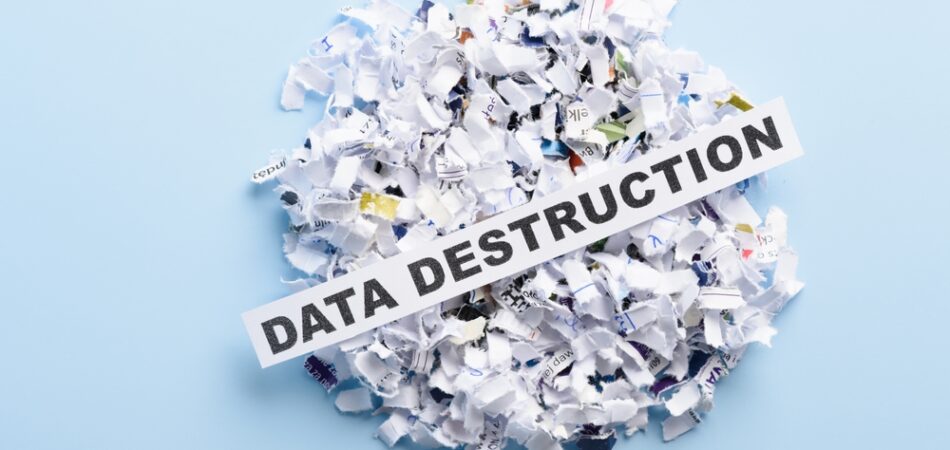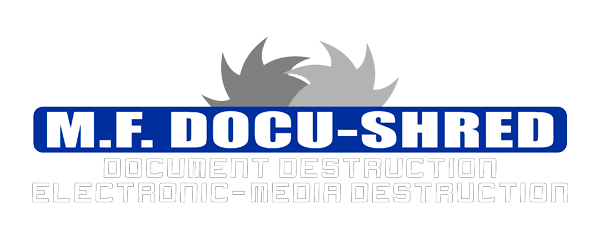
Today, information security is as crucial to business operations as traditional physical assets. From tax records and customer invoices to employee files and marketing materials, Hugoton businesses manage an overwhelming volume of sensitive data daily. Without a well-structured data destruction strategy, these businesses risk data breaches, identity theft, compliance violations, and serious reputational harm. Understanding and implementing effective data destruction practices is no longer optional—it’s a legal and ethical obligation. In this blog, we’ll explore the fundamentals of secure data disposal, why document shredding plays a key role, and how Hugoton businesses can build an end-to-end data destruction program to protect their operations and customers.
The Importance of Secure Data Disposal in Hugoton
In Hugoton, where small to mid-sized businesses are often the economic backbone of the community, secure data disposal may seem like an issue only large corporations need to address. However, this is a misconception. Whether you run a medical clinic, a law office, a retail shop, or a local school, your organization is likely collecting personal identifiable information (PII), financial records, or proprietary business intelligence—all of which are valuable targets for cybercriminals or malicious insiders.
Secure data disposal is the process of rendering information unreadable and irretrievable once it’s no longer needed. This includes both digital and physical formats. Compliance regulations such as HIPAA, FACTA, and the Gramm-Leach-Bliley Act require strict measures to dispose of sensitive information appropriately. For businesses in Hugoton, noncompliance could result in fines, audits, and even lawsuits. Moreover, failing to dispose of information securely can permanently damage trust with customers and vendors. Secure disposal practices ensure that sensitive data does not fall into the wrong hands and demonstrate that your business takes privacy and security seriously.
Establishing an Effective Data Destruction Policy
A data destruction policy outlines how your organization handles the disposal of data throughout its lifecycle. This policy serves as a foundation for enforcing secure data disposal and helps all employees understand their roles in protecting sensitive information. For Hugoton businesses, creating this policy requires careful planning and consideration of local, state, and federal regulations.
Your policy should define what types of data are collected and stored, retention periods, and who is responsible for approving the disposal of data. It should also specify acceptable destruction methods for different data formats. For example, shredding might be appropriate for paper records, while degaussing or physical destruction is more suitable for hard drives and other media.
A key part of the policy is maintaining an audit trail. Every time data is destroyed, it should be logged with the date, method, and personnel involved. This not only ensures accountability but also serves as proof of compliance should you ever face a data breach investigation or regulatory audit. Businesses should also review their data destruction policy annually and update it as new technologies and threats emerge.
Document Shredding: Your First Line of Defense
For most Hugoton businesses, paper records remain a core part of daily operations. Whether it’s contracts, invoices, payroll records, or customer forms, physical documents contain valuable information that needs proper disposal. Document shredding is one of the most effective and affordable data destruction practices available to local businesses.
Shredding paper records renders them unreadable and unrecoverable, which protects the organization from unauthorized access or misuse. Many businesses make the mistake of throwing papers in the trash or recycling bin without shredding them first. Unfortunately, dumpster diving is a real and ongoing threat, and attackers know that unshredded documents can reveal valuable personal or business information.
There are multiple shredding options available in Hugoton, from in-house shredders for low-volume needs to professional shredding services that handle large volumes securely and efficiently. Professional services often offer locked bins for secure collection and issue certificates of destruction as proof that documents were destroyed according to regulatory standards. These services are especially beneficial for organizations with limited staff or time to dedicate to shredding. Regardless of the method, document shredding should be integrated into your routine office workflows, with clear guidelines for employees on when and how to shred documents.
Best Practices for Digital Data Destruction
While document shredding is critical, businesses cannot afford to overlook digital data destruction. With the increasing reliance on digital tools, cloud computing, and remote work, vast amounts of sensitive data are now stored on hard drives, USBs, mobile devices, servers, and backup tapes. Deleting files or reformatting drives is not enough; data can often be recovered using forensic tools if it hasn’t been thoroughly destroyed.
For Hugoton businesses, proper digital data destruction begins with identifying where sensitive information resides and categorizing it according to risk. Once data is identified for destruction, businesses should choose from several secure methods depending on the device and sensitivity of the data.
Degaussing is a method that uses strong magnetic fields to erase data from magnetic media. It’s fast and effective, though it renders the device unusable. For organizations looking to recycle equipment, physical destruction—such as shredding hard drives or crushing them with industrial equipment—is a highly secure option. Software-based wiping, when done correctly, is another method for reusing storage media safely. However, the software must meet recognized standards such as those set by NIST (National Institute of Standards and Technology).
It’s also important to incorporate data destruction into your employee offboarding procedures. Whenever an employee leaves, their devices, accounts, and access credentials should be reviewed and their data securely wiped or transferred as necessary. Digital disposal policies should extend to personal devices used in bring-your-own-device (BYOD) environments as well, which are increasingly common in smaller Hugoton businesses.
Building a Culture of Data Security in Hugoton
Effective data destruction practices are not just about having the right equipment or service provider—they require a cultural commitment to information security. Business owners in Hugoton can foster a strong data security culture by training employees on proper disposal procedures and emphasizing the role everyone plays in safeguarding information.
Employee awareness training should cover what constitutes sensitive data, how to identify data ready for destruction, and the procedures for securely disposing of it. Role-specific training ensures that individuals in high-risk areas—such as HR, finance, or legal—receive deeper instruction aligned with the kinds of information they handle daily.
Partnering with reputable shredding and e-waste vendors can also enhance your data protection strategy. Look for vendors that are certified by recognized industry bodies such as NAID (National Association for Information Destruction), which ensures compliance with security and environmental standards. These partnerships provide peace of mind while freeing your internal resources to focus on core business operations.
Finally, communication is key. Periodically remind employees about data destruction policies, share updates on compliance requirements, and highlight success stories or cautionary tales to keep the importance of data disposal top-of-mind. When secure data disposal is part of the organizational identity, employees are far more likely to take it seriously and follow procedures diligently.
Conclusion
As Hugoton businesses continue to navigate the complexities of managing physical and digital information, data destruction practices become an essential part of operational resilience. From secure document shredding to hard drive destruction, these procedures not only protect your business from legal and financial fallout but also reinforce customer trust and community reputation.
A proactive approach to secure data disposal allows Hugoton businesses to stay ahead of compliance requirements, reduce the risk of breaches, and maintain a professional standard in a competitive market. Start by evaluating your current data handling policies, training your staff, and partnering with certified service providers. By embedding data destruction best practices into your business routine, you’re not just discarding old files—you’re safeguarding your future.
If you’re ready to take data security seriously and protect your Hugoton business from risk, we’re here to help. At M.F. Docu-Shred, we specialize in secure, compliant document and digital media destruction tailored to the needs of small and mid-sized businesses like yours. Whether you’re looking to implement a comprehensive destruction policy or simply need a reliable shredding service for outdated files or hard drives, our team brings expertise, professionalism, and peace of mind. Let’s work together to build a safer, more secure business environment—reach out to us today to get started.

